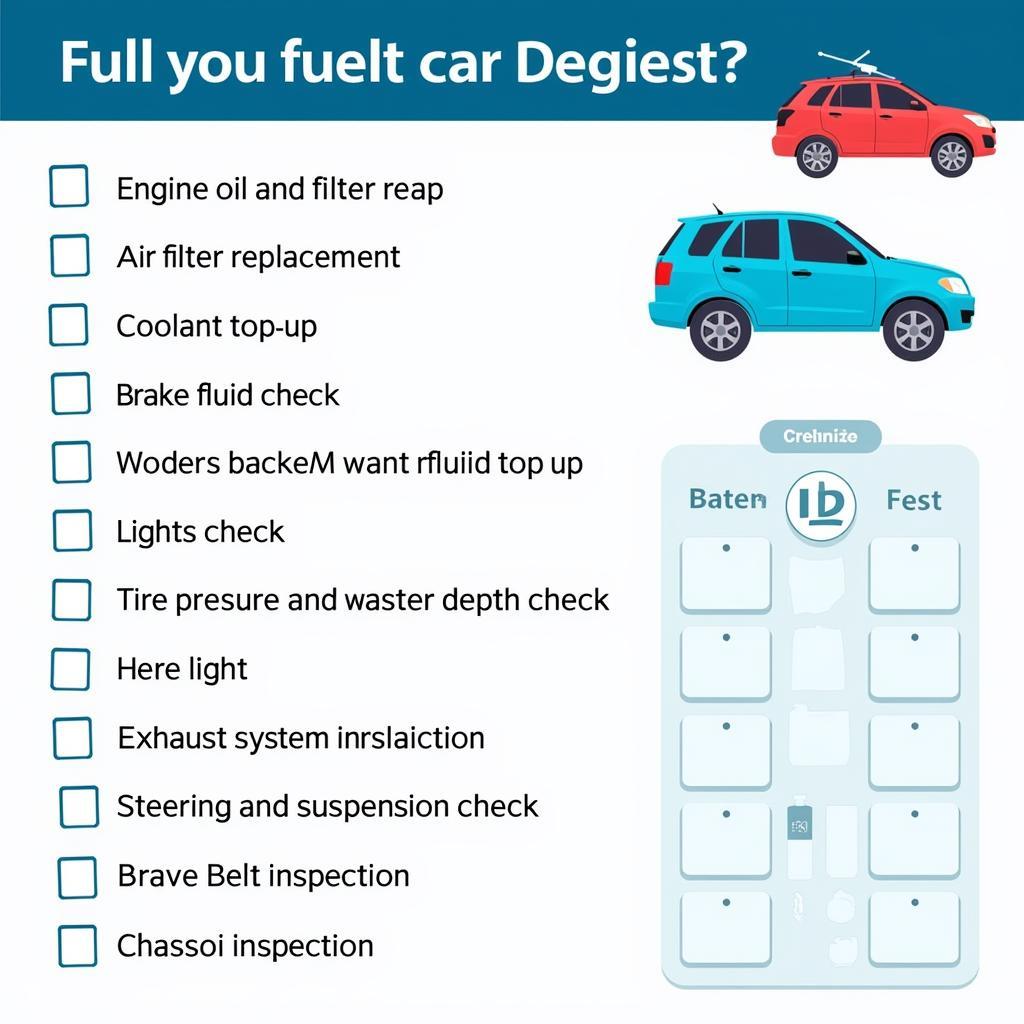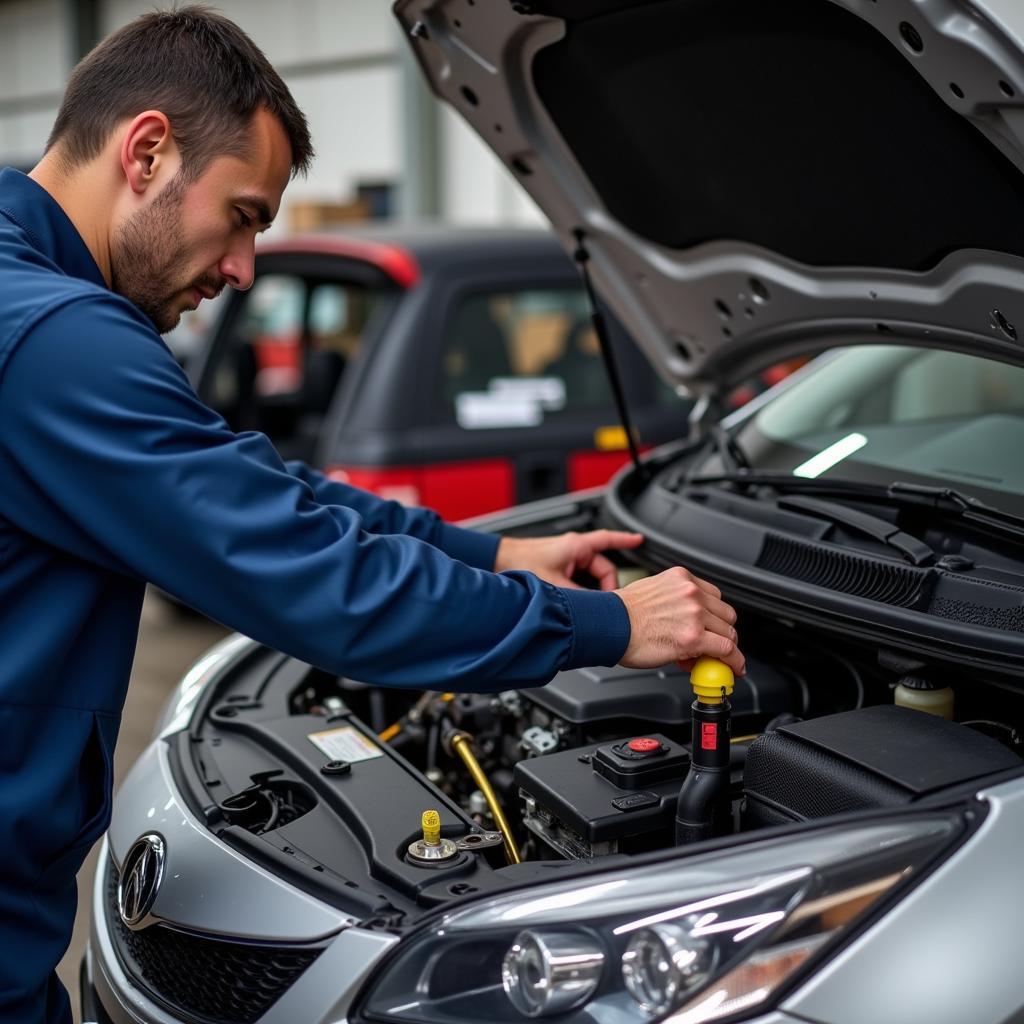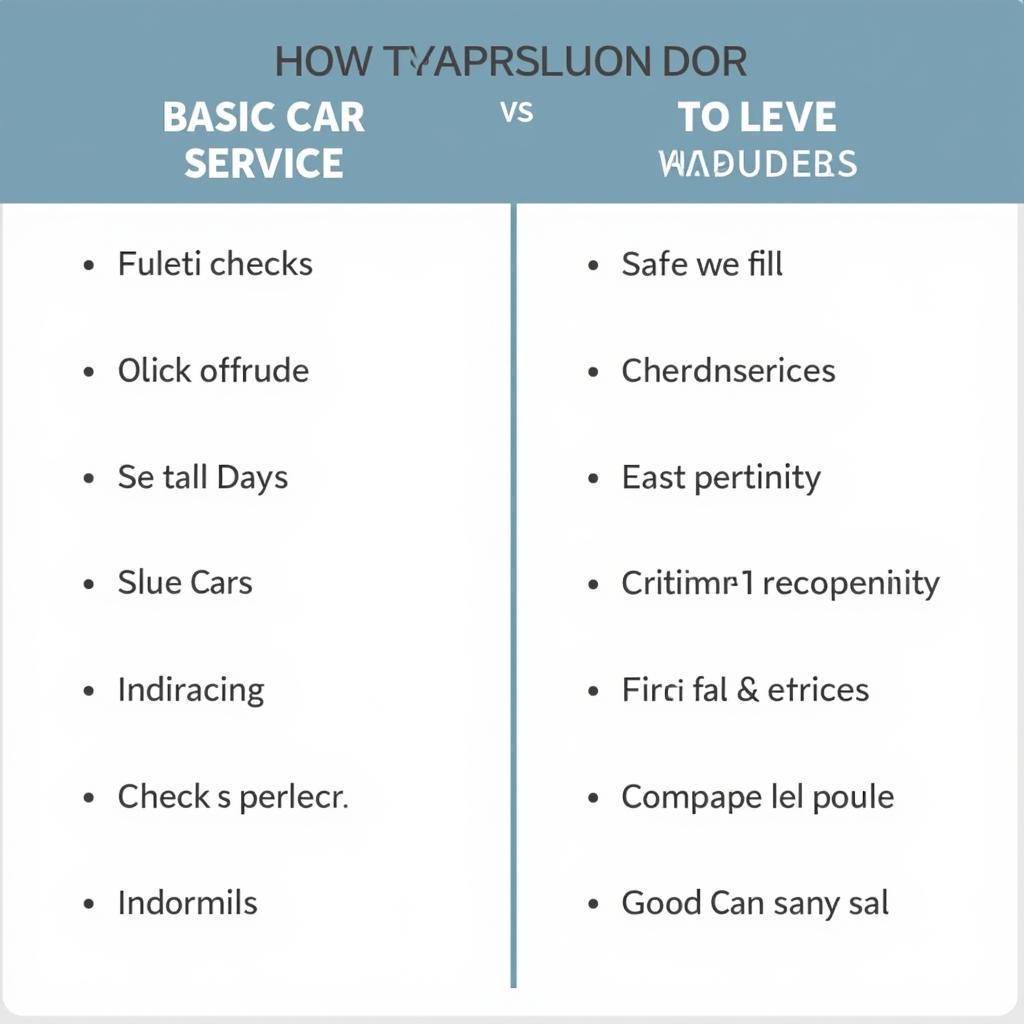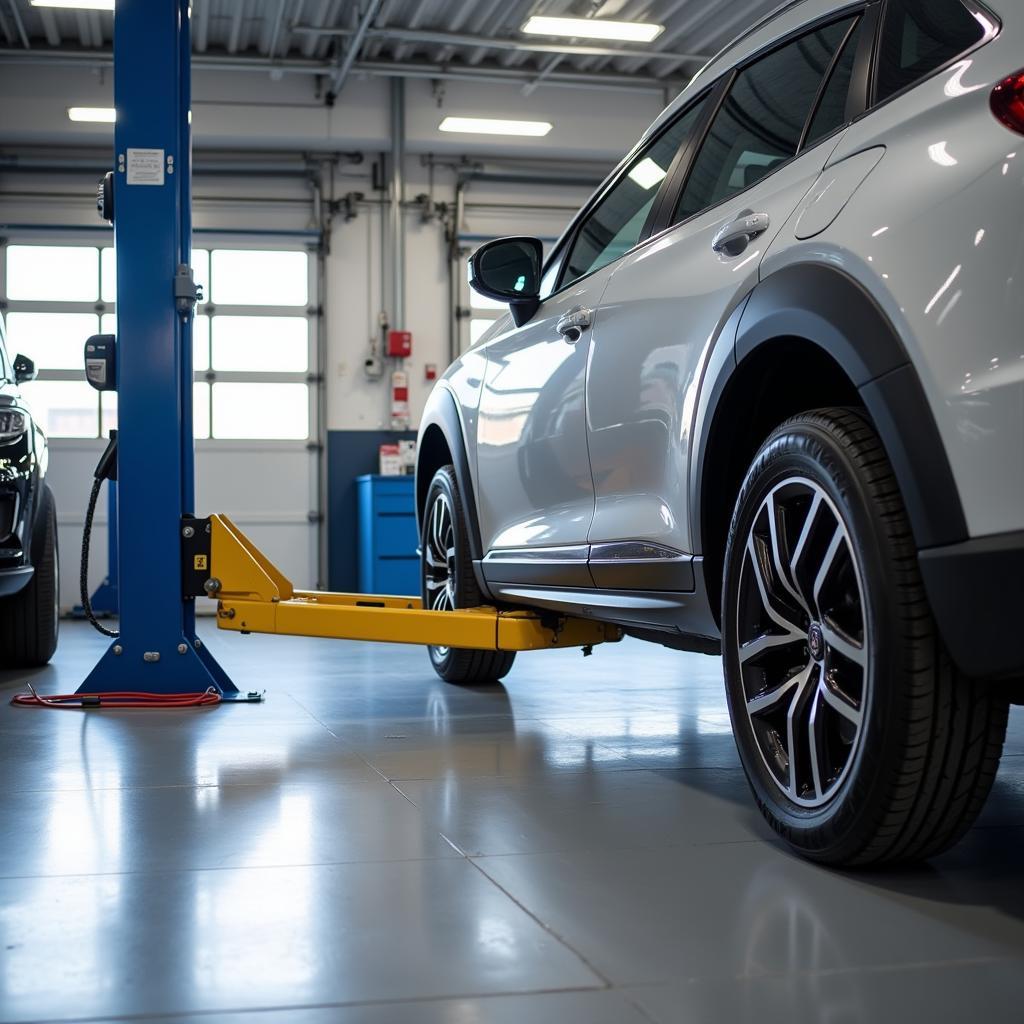What Does a Full Car Service Involve?
A full car service is much more than a quick oil change. It’s a comprehensive check-up designed to keep your car running smoothly, safely, and efficiently. Understanding what a full car service involves can save you money in the long run and give you peace of mind on the road. So, What Does A Full Car Service Involve? Let’s dive in and explore the intricacies of this essential car maintenance procedure. You might be interested to learn more about what’s included in a full car service.
Breaking Down a Full Car Service
A full car service is a detailed inspection and maintenance procedure covering various aspects of your vehicle. It goes beyond a basic service and provides a more in-depth assessment of your car’s health. This comprehensive approach helps identify potential problems early on, preventing costly repairs down the line.
What’s Checked During a Full Car Service?
A full car service typically includes checks on the following: engine oil and filter, air filter, coolant levels, brake fluid, power steering fluid, windscreen washer fluid, lights, tires (including pressure and tread depth), exhaust system, steering, suspension, battery, and drive belts. Many services also include a thorough visual inspection of the chassis for any signs of rust or damage.
 Full Car Service Checklist Image
Full Car Service Checklist Image
Beyond the standard checks, a full car service might also involve more specialized procedures, such as spark plug replacement, fuel filter replacement, and cabin air filter replacement. The specific inclusions can vary depending on the service provider, the age and model of your car, and your driving habits. If you are curious about the costs involved, you can find out more about how much it cost to service a car.
Why is a Full Car Service Important?
Regular full car services are essential for several reasons: maintaining safety, improving performance, extending the lifespan of your car, and potentially increasing its resale value. A well-maintained vehicle is a safer vehicle, as regular servicing can identify and address potential safety issues before they become major problems.
 Car Service in Progress Image
Car Service in Progress Image
Furthermore, regular servicing can help improve your car’s performance and fuel efficiency. By ensuring all components are working correctly, a full car service can optimize your engine’s performance and minimize fuel consumption. Knowing where you can get other services, such as where can i get my car vacuumed out by service, can further enhance your car maintenance experience.
Different Service Levels: Basic vs. Full
Understanding the difference between a basic and a full car service is crucial. A basic service primarily focuses on essential checks and replacements, such as oil and filter changes. A full service, on the other hand, is a much more comprehensive inspection and maintenance procedure.
Choosing the Right Service for Your Car
The right service for your car depends on various factors, including its age, mileage, and your driving habits. If you drive frequently or in challenging conditions, a full service might be necessary more often. For those curious about starting a car service business, understanding these service levels is key. Find more information on what do i need to start a car service business. It’s also helpful to understand what is included in servicing a car.
 Basic vs. Full Car Service Comparison Image
Basic vs. Full Car Service Comparison Image
Conclusion: Keeping Your Car in Top Shape
A full car service is an investment in the health and longevity of your vehicle. By understanding what a full car service involves, you can make informed decisions about your car’s maintenance and ensure it stays in optimal condition. Regular servicing not only enhances safety and performance but also saves you money in the long run by preventing major repairs.
FAQ
- How often should I get a full car service? Typically, every 12,000 miles or annually, but consult your car’s manual for specific recommendations.
- What is the difference between an interim and a full service? An interim service is less comprehensive than a full service, covering fewer checks and replacements.
- Can I perform a full car service myself? While some basic maintenance can be done at home, a full service is best left to qualified mechanics.
- How long does a full car service take? It can take several hours, depending on the car and the specific services included.
- How much does a full car service cost? The cost varies depending on the service provider, the car’s make and model, and the specific services performed.
- What should I look for in a car service provider? Look for qualified mechanics, positive reviews, and transparent pricing.
- Is it necessary to follow the manufacturer’s service schedule? Following the manufacturer’s service schedule can help maintain your car’s warranty.
Common Car Service Scenarios:
- Scenario 1: Your car is making unusual noises. A full service can help diagnose the problem.
- Scenario 2: You’re planning a long road trip. A full service ensures your car is in optimal condition for the journey.
- Scenario 3: You’re about to sell your car. A full service can increase its resale value.
Need more information? Explore other articles on our website, such as those focusing on specific car makes and models or common car maintenance issues.
For immediate assistance or to schedule a car service, please contact us via WhatsApp: +1(641)206-8880, Email: [email protected], or visit our office at 456 Oak Avenue, Miami, FL 33101, USA. Our 24/7 customer service team is ready to help.

